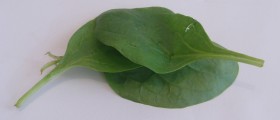
Folic acid is one of the most important nutrients. Its deficiency can lead to a range of problems, especially in pregnancy. Folic acid can be found in its natural form, in foods, and it can also be consumed in synthetic form, as a supplement or through fortified foods.
Importance of folic acid
The vitamin B9 occurs in several forms, including folic acid or folacin or folate, which is the naturally occurring form, as well as pteroyl-L-glutamic acid. Folic acid is not biologically active, but it is used by the body due to its conversion into dihydrofolic acid in the liver.
This vitamin is very important for the human body. It participates in formation and repair of the DNA, and it is particularly important for cell division and growth, especially in unborn babies. Normal levels of folates are believed to reduce the risk of cancer, however, excessive intake of this vitamin can actually be dangerous, as it is believed it accelerates the growth of cancerous cells.
Folate deficiency can be quite dangerous, especially in pregnancy. It is well known that the lack of folate leads to neural tube defects in embryos, which may lead to deformities such as spina bifida. This deficiency may also cause diarrhea, anemia, shortness of breath, nerve damage, numbness, mental problems such as confusion, impaired memory and concentration, heart problems and behavioral problems.
Synthetic natural sources of folic acid
Folic acid is available in many natural sources, however, it has been argued that its bioavailability is much lower in that form than in synthetic food supplements. Since 1998, it has become mandatory in the US to fortify all grains and grain products with folic acid, in order to prevent deficiency, which is today rare in the Western countries. After this move of the American health authorities, the number of neural tube defects was cut down by 25%.
As for the natural sources, corn is certainly one of them, although it needs to be processed in a way that allows the human body to absorb folic acid. Spinach leaves were also a significant source, but mostly for obtaining the extract. Another great source of folic acid is nutritional yeast, which was widely used in 1930’s to prevent anemia.
Folic acid is found in meat too, especially in organs, such as chicken and turkey liver. It is also found in green leafy vegetables, such as Romaine lettuce, collard greens, as well as in beans, broccoli, cantaloupe, peas, peanuts and bananas.
In case a person decides to take folic acid supplements, the recommended daily allowance is 400 micrograms per day, while pregnant or lactating women and women who plan on becoming pregnant should take at least 600 micrograms per day.
















Your thoughts on this
Loading...